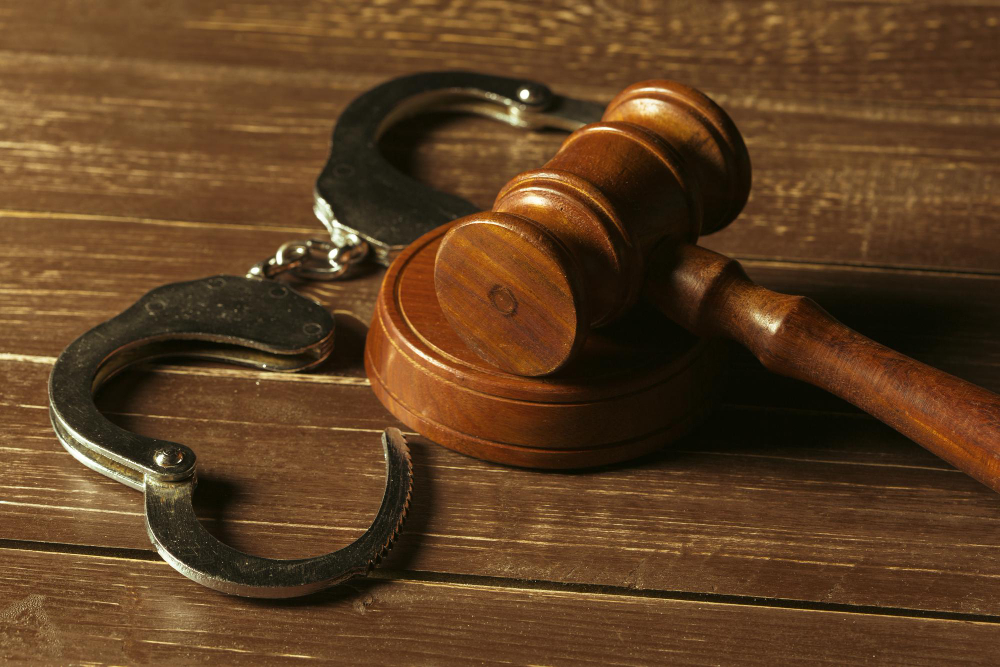


Getting arrested can be one of the most stressful and overwhelming experiences of your life. Your heart is racing, your mind is spinning, and you're not sure what happens next. Understanding the proper steps to take immediately after an arrest can make a significant difference in your case outcome and overall experience navigating the legal system.
Whether this is your first encounter with law enforcement or you're helping a loved one through this difficult time, knowing your rights and responsibilities is crucial. The decisions you make in the first few hours after an arrest can impact everything from your bail amount to the strength of your defense case.
This guide walks you through the essential steps you should take after being arrested, helping you protect your rights and make informed decisions during this challenging time.
The moments immediately following your arrest set the tone for everything that follows. Your first priority should be staying calm and composed, even though this feels nearly impossible given the circumstances.
You've likely heard these words on television countless times, but understanding them becomes critically important when you're the one being arrested. Law enforcement officers must inform you that:
These rights exist to protect you, so use them. Many people make the mistake of trying to talk their way out of an arrest or explain their side of the story. This rarely helps and often provides prosecutors with additional evidence to use against you.
Beyond providing basic identifying information like your name and address, avoid answering questions about the alleged incident. Police officers are trained interrogators who may use various techniques to encourage you to speak. Remember that anything you say, even casual comments, can be used as evidence later.
If officers continue questioning you after you've invoked your right to remain silent, politely but firmly repeat that you want to speak with an attorney before answering any questions.
Once you've been processed and have access to a phone, your first call should be to a qualified criminal defense attorney. If you don't have one, ask for the phone number of the public defender's office or request a court-appointed attorney.
An experienced attorney understands the local court system, knows the prosecutors and judges, and can spot potential weaknesses in the prosecution's case. They can also advise you on plea negotiations, help reduce charges, or work to get your case dismissed entirely.
Your attorney will also handle communications with law enforcement, ensuring that your rights remain protected throughout the process. This prevents you from accidentally saying something that could harm your case.
The sooner you have legal representation, the better. Your attorney can begin working on your case immediately, potentially preserving evidence or witness testimony that might disappear over time.
After your arrest, you'll go through the booking process at the police station or jail. Understanding what happens during booking can help reduce anxiety and ensure you're prepared for each step.
Officers will record your personal information, take your photograph (mugshot), and collect your fingerprints. This information gets entered into databases that law enforcement agencies can access. The booking process also includes a thorough search and inventory of your personal belongings.
Most facilities conduct a basic medical screening to identify any immediate health concerns or medications you might need. You'll also be assigned to a housing unit within the facility based on factors like the nature of your charges, your criminal history, and safety considerations.
Your personal belongings will be inventoried and stored securely. Make sure you understand the facility's policies for retrieving these items, as procedures vary between jurisdictions.
Understanding your options for release from custody is crucial for getting back to your normal life while your case proceeds through the court system.
Several release options may be available depending on your charges and criminal history:
Personal Recognizance: You're released on your promise to appear in court without paying money upfront. This option is typically available for minor offenses and first-time offenders.
Cash Bail: You or someone on your behalf pays the full bail amount to the court. This money is returned when your case concludes, provided you've met all court requirements.
Property Bond: Real estate or other valuable property serves as collateral for your release.
Bail Bonds: A bail bondsman posts bail on your behalf for a fee, typically 10% of the total bail amount.
When cash bail isn't feasible, bail bonds provide an affordable alternative. If you need help with bail bonds in Orlando, FL, contact Mike Snapp Bail Bonds today for more information. Professional bail bond agents understand the local court system and can expedite your release process.
A reputable bail bondsman will explain all terms and conditions clearly, including your responsibilities while out on bail and the consequences of missing court dates.
Your first court appearance, called an arraignment, typically occurs within 24 to 72 hours of your arrest. This hearing serves several important purposes in the legal process.
During arraignment, the judge will formally read the charges against you and ask for your plea. Your attorney will likely advise you to plead "not guilty" at this stage, which preserves all your legal options and gives your lawyer time to review the evidence.
The judge may also address bail conditions or modify your release terms during this hearing.
If you're released on bail, you must comply with all conditions set by the court. These might include:
Violating any bail conditions can result in your arrest and detention until trial.
An arrest can have long-lasting consequences beyond the immediate criminal charges. Taking proactive steps to protect your future is essential.
Keep detailed records of everything related to your arrest and case. This includes police reports, court documents, bail paperwork, and any communications with attorneys or court officials. These records will be valuable throughout your case and for any future legal matters.
If possible, continue meeting your work and family obligations while your case is pending. Demonstrating stability and responsibility can positively influence prosecutors and judges when making decisions about your case.
Stay out of trouble while your case is pending. Any new arrests or legal issues will complicate your existing case and may result in additional penalties or revocation of bail.
Getting arrested doesn't define you, but how you handle the situation can significantly impact the outcome. By remaining calm, exercising your rights, securing qualified legal representation, and following all court orders, you give yourself the best chance for a favorable resolution.
Remember that the criminal justice system can be complex and intimidating, but you don't have to navigate it alone. Professional bail bond services, experienced attorneys, and supportive family and friends can help you through this challenging time.
Take each step carefully, make informed decisions, and focus on protecting your rights and your future. With the right approach and proper support, you can work toward putting this experience behind you and moving forward with your life.